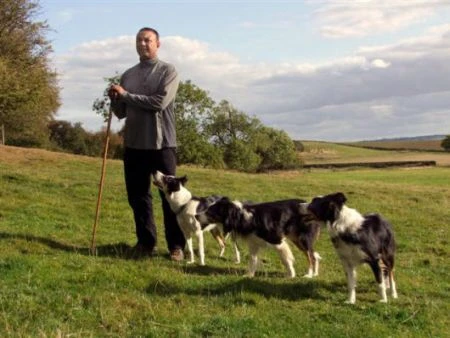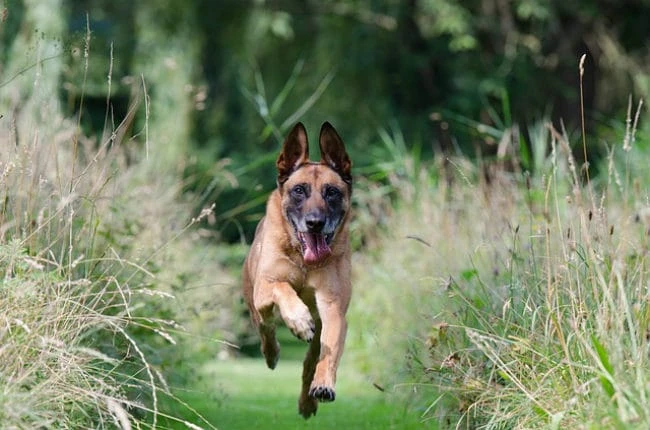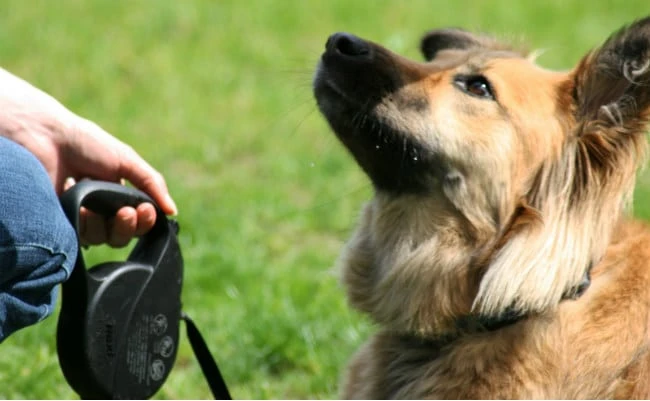Dog Training Interview Nij Vyas, Border Collie Photos, Sheepdog Trials

An Interview with Top Dog Trainer Nij Vyas…

Nij Vyas top Sheepdog trainer in beautiful surroundings
Today we are fortunate enough to be interviewing Nij Vyas – a very successful dog obedience trainer (a member of the Pet Association of Pet Dog Trainers and has been running his dog training business for over twenty years), Nij has entered many national and international sheepdog trials and is also about to have his new book published on sheepdog training, so we are truly privileged.
Thanks Nij for taking the time and answering some of our questions as we know how busy you must be.
Nij, could you tell our readers a little about yourself, your background and your book that is out soon….
I have trained dogs for 20 years, initially exhibiting Border Collies at breed shows and also competing in obedience shows however once I had a taste of watching the collie do what it was bred to do the learning process really began for me. There is a lot to be said for standing back and observing dogs and trying to understand them rather than inflicting change and control over them.
My book “Sheepdog Training and Trials” is a comprehensive guide not just for training sheepdogs to work sheep but to manage a variety of difficult and challenging behavior. It will provide a useful guide for all breeds of dog. It looks at the Dominance debate and puts it into modern context and there are also new concepts such as my theory of Passive Resistance and related techniques. I have also discussed health and fitness in working dogs including homeopathy.
Q1. Sheepdog training is an area of dog training that is quite new to us and some of our readers, could you explain what takes place in sheepdog trials?
Sheepdog trials take place all over the UK and many other countries are following suit. The dogs, normally Border Collies are asked a work a fresh pack of sheep over a course which is designed to simulate what the dogs are used for on farms all over the country. The major difference being that greater precision is called for at trials and there is a time limit, although ultimately the idea is to complete the course in the most practical manner possible, just as it is on the farm.
Q2. Could you explain a little more about puppy socialization, your techniques and why it is so important?
Puppy socialization is crucial but I feel that breeders have the greatest responsibility to socialize their pups as it is widely recognized that puppies undergo a critical period between 4-12 weeks of age and owners are often restricted or hindered until the pups are vaccinated.
I believe that the best way to socialize is for puppies to learn without interference from their owners. Owners can have many inhibitions’ and anxieties and positive learning cannot take place with these. I come across many recall problems with dogs that have attended “puppy parties” at the vet because the pups are all let off the lead in a confined space and when problems arise, which they inevitably do, people interfere and pick their dogs up. Some pups even become hand shy and avoid their owners out stretched hands, choosing instead to run in the opposite direction.
Q3. Nij, what are your views regarding Cesar Millan and his dog training techniques?
Cesar certainly has caused a huge stir! I feel that Cesar has learnt from experience of living with and observing animals and working with animals. There is no better teacher than experience. Anyone that works with animals should ultimately reach the same conclusions yet this is not the case. There are many people who work with dogs that don’t have enough diverse experience of working with them practically and greater emphasis is placed on changing or altering them.
If you observe animals closely it is difficult not to adhere to dominance theory yet the politically correct brigade have turned something that is quite natural into something which is taboo and frowned upon. The role of a pack leader as Cesar calls it is no different to that which a parent plays with a child. Parents provide “rules, boundaries and limitations” and they also provide “exercise discipline and affection”
Dominance is about controlling access to what the owners holds as precious or valuable as well as what motivates a dog. Controlling access also provides safety. Parents who offer affection through food without exercise or discipline often have obese children. Children as well as dogs can be spoilt and I have yet to see a child who has been spoilt that is also happy. The same goes for dogs.
Cesar has many critics for resorting to the Alpha roll yet no one has ever thought to criticize physical intervention techniques such as “team teach” that are practiced in special schools, to calm children who hurt themselves, others or profoundly damage property. Physical intervention is used as a last resort and I believe this is what Cesar does. Personally I avoid such techniques.
Regarding the use of electric collars I have no practical experience of these though in principal I do not support their use. I believe Cesar only uses these in life or death situations. In any walk of life constructive criticism is always useful however I have rarely if ever seen Cesar’s critics offer alternatives. Their criticism would hold more weight if they also provided alternatives.
I do feel that some of the techniques shown are inappropriate for television and have noticed people applying such methods to their dog’s detriment, because they don’t have the knowledge or the skill. I have also seen many behavior practitioners in the UK use and advocate gadgets to control challenging behavior in dogs and I have also observed these to cause further problems. They too are members of professional bodies.
Q4. What is so special to you about Sheepdogs (Border Collies) and are they as intelligent as most people think?
The Border Collie has many wonderful and natural attributes for working with sheep. Even before any training takes place the Collie is gifted with raw but natural abilities for speed, diligence, guile, and tenacity. There are many situations where the Collie’s natural reactions will not only be correct but quicker than any command you can deliver.
Where sheep work is not possible Collies have equally adapted to many other disciplines proving just what a versatile breed it is. Regarding intelligence I don’t think one can make such sweeping statements as was once the case. Historically it was the British bred collies registered with the International Sheepdog Society that were associated with intelligence. However the influx of imports from New Zealand and Australia for example, in my opinion, are not the same type.
I have experience of training them for sheep work and have noticed that they have similar instincts to the British collie but it is as though someone has misfiled them and when you really need them to think for themselves they have fallen way short of the mark. I do not know of a single collie of New Zealand or Australian breeding that has competed successfully and consistently at sheepdog trial. Temperament in these collies is also questionable. I have discussed this subject with people who compete in the various disciplines and they all concur to this point of view.
Q5. How difficult are sheep to handle and how long does it take to train your dogs to the standard when they can enter competitions (trials).
Sheep need time to get used to dogs and as with all animals they respond well to calm handling. Over time they become accustomed to dogs although they can also sense or smell weakness in a dog and will stand and face up to a dog and challenge it. Like all animals and that includes us if they are treated with respect and handled with care and authority by the dog they can be quite easy to manage. Different breeds of sheep have particular characteristics and some are more manageable than others.
To get a dog to trial standard can take up to a year although just for farm work you can get a dog to help around the farm within a month or two, depending on their breeding, natural ability and age.
Q6. What training techniques do you use when training your dogs?
I believe in using positive reinforcement as do most modern day trainers however trainers should also remember that negative reinforcement also exists and this does not equate to punishment. When working with young dogs I opt for a silent approach, choosing to see what the dog does naturally and to assess its temperament. I find that by speaking or making demands of young dogs, refusal on their part can often cause anger and frustration in the handlers and this is not the best way for a fruitful relationship to begin. A handler needs to be calm, patient and confident in his/her ability.
At Bertie we have over the years coined the term Passive Resistance whereby some dogs demonstrate either refusal or stubbornness based on phobia or strong survival instinct. In conjunction with this theory, we have also devised two techniques called “Pressure on- Pressure off” and the “Concept of opposites”. These are discussed at length in my forthcoming publication “Sheepdog Training and Trials.”
Q7. Could you go into more detail some of the dog training commands that you use when training sheepdogs to herd sheep and how difficult is it to master using the sheepdog whistle?
We use directional commands for left and right and for the dog to walk onto sheep and also a stop or slow command to stand, lie down or just slow down. Most whistle commands can also be halved to signify a shorter distance. Then there is a “look back” or “turn back” command which involves the dog looking behind and then going back for sheep that might have been left behind.
The whistle itself is relatively easy to get a sound out of provided you are shown how to use it however to achieve consistency can take a considerable amount of practice and time. I have known people to take over a year. It is like learning musical instrument.
Q8. Are Border Collies susceptible to any specific behavioral problems and if so – how do you cure these problems?
As with all intelligent animals they can learn things quickly and if positive elements are not rewarded or acknowledged by owners they can soon turn to behaving badly or in a challenging way. People have a knack of sitting back and enjoying the silence when a dog is behaving itself and as soon as they behave badly attention is given therefore bad behavior is reinforced. Just as bad behavior needs correcting within the first few seconds good behavior needs rewarding just as quickly.
Border Collies in particular will chase traffic or anything that moves. They sometimes don’t welcome physical contact from strangers as well as eye contact, which can be perceived as threatening. Working dogs are taught to grip challenging ewes and some do this naturally and they don’t differentiate with people and livestock. Border collies are born to herd and in the absence of sheep they can generalize to traffic, balls or even people.
Sometimes the best cure is to leave things well alone and to stop the people from interfering with dogs. Dogs soon realize whether people are a threat or not. If you don’t give an opportunity for a dog to behave in a particular way then as it grows older and acclimatizes to people and surroundings the problems can be alleviated.
This is exactly how dogs should be socialized, free from outside influence and interference. The world is full of good and bad experiences and by learning to adapt and finding their own coping strategies dogs develop their strength of character.
Where dogs are assessed as being Passive Resistant there is no cure however owners are shown how to manage the symptoms.
Q9. What are sheepdogs like as pets?
Difficult and challenging – They need a tremendous amount of physical and mental exercise, in other words they need work. Owners need to be able to provide substitutes for work in the form of obedience training, jogging, disciplines such as fly ball, agility and so on. This is true for many breeds of dogs.
Many owners come to me for basic pet dog training but it is not they who should decide the type of training their dog needs. It is the type of dog they have that determines how much training and what level of training they require. In the vast majority of cases this needs to be fairly advanced. People are more often than not really aware of, or deny, their dog’s true capabilities . They humanize their dogs rather than treating them as dogs/animals and many find this acceptable, yet the idea of rearing a baby or child as a dog would be met with anguish.
Q10. Finally Nij, if you could give our readers five top tips that they should remember when training their dog what would they be?
- Learn to observe what your dogs can do naturally and remain silent so the process is simplified.
- Learn to watch the individual parts of a dog, their eyes, ears, tail etc and not the whole.
- Learn to forgive mistakes and don’t hold grudges.
- Don’t work with preconceptions and work in the now, having realistic expectations.
- Remain calm and confident. Your dog, as children do, expects you to provide a safe environment in which they will thrive and prosper. There is no room for uncertainty or negativity.
Go from here back to our list of dog training interviews or back to dog obedience training home-page




